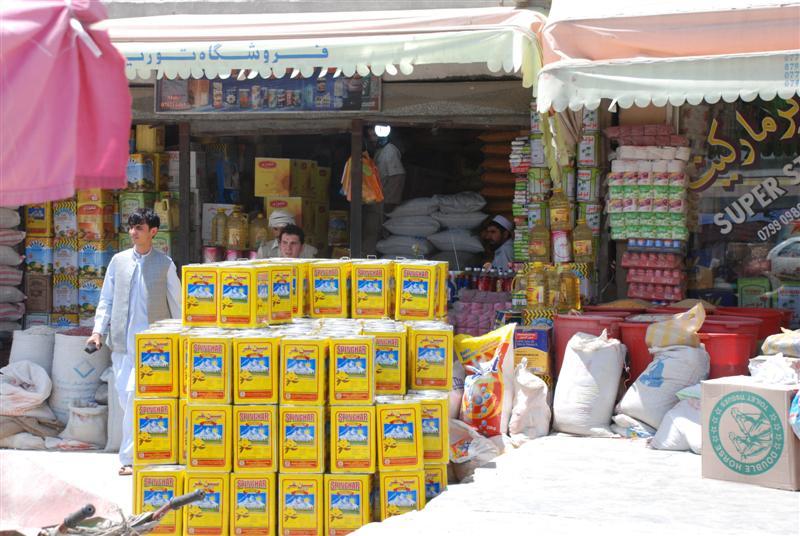CHAGHCHARAN (PAN province, sending rates of daily-use commodities soaring in districts and the provincial capital, officials said on Tuesday.
One of the key roads connecting Chahar Dara district with Chaghcharan had been closed over the past month, creating numerous problems for locals, Mohammad Musa, the town’s acting administrative chief, told Pajhwok Afghan News.
He complained due to the blockade the rate of a 50-kilogram sack of wheat had risen from $24.24 (1,200 afghanis) to 2,200 afs and 16 kg of cooking oil from 1,500 to 2,000afs, one kg of gas from 80afs to 110afs and one liter of fuel from 70afs to 120afs.
In addition, the official said, it was difficult to find essential items in the market. Most of district residents were poor and hence their inability to purchase daily-use items at higher prices.
Musa came hard on the firms responsible for keeping roads open during the winter, saying the companies had been unable to do their job. Residents could not take patients to health facilities, which have been closed due to the lack of doctors and nurses, he added.
Abdul Rahim, a resident, demanded health clinics be reopened immediately so they heave a sigh of relief. He said the rates of essential food had gone beyond the reach of poor families, fearing the prices could further mount if roads were not reopened.
Gul Mohammad, a resident of Tolak district, complaining about high prices, said the closure was affecting their lives. He blamed the government for failing to reopen the roads, saying health clinics in the district had been closed.
Chaghcharan dwellers also grumbled about high prices. Nasima, a widow who lives with her three children in a rock-made house, said her husband had passed away 10 years ago and she had since been the only breadwinner for her family.
“I wash people’s cloths and clean their houses to make a living. My daily income is between 100 and 120afs, which is not enough to satisfy my children’s needs,” she lamented. She purchases seven kg of wood for 150afs, more than her daily income.
Meanwhile, Mohammad Sadeq Yusufi, a provincial council member, claimed he remained trapped under snow for 11 nights before being rescued by residents. He said most residents were going through a critical situation due to the lack of food. Thousands of household animals were at risk, he pointed out.
Hamidullah Dadfar, the Afghanistan National Disaster Management Authority (ANDMA) head for Ghor, and public health officials confirmed the problems, Thy said efforts were on to reopen the roads and clinics as soon as possible.
mrh/ma/mud







GET IN TOUCH
NEWSLETTER
SUGGEST A STORY
PAJHWOK MOBILE APP